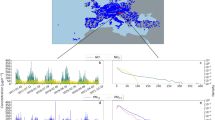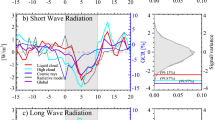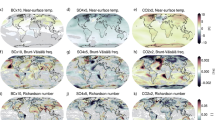Abstract
I HAVE read with especial interest the summary, in NATURE of April 5, p. 493, of Prof. Nolan's recent work on the relation between the potential gradient and the number of large ions in the atmosphere, because the problem he refers to is at least closely related to one that has been under investigation at Kew Observatory: namely, the relation between the potential gradient and the impurity in the atmosphere. In a recent paper (Roy. Soc. Proc. A, vol. 105, p. 311), discussing the observational results of 1921 and 1922, Mr. R. E. Watson and I found that the potential gradient at Kew is much enhanced by the impurity present in the air, being apparently on the average about double what it would be if the atmosphere were pure.
This is a preview of subscription content, access via your institution
Access options
Subscribe to this journal
Receive 51 print issues and online access
$199.00 per year
only $3.90 per issue
Buy this article
- Purchase on Springer Link
- Instant access to full article PDF
Prices may be subject to local taxes which are calculated during checkout
Similar content being viewed by others
Author information
Authors and Affiliations
Rights and permissions
About this article
Cite this article
CHREE, C. Atmospheric Electricity and Atmospheric Pollution. Nature 113, 855–856 (1924). https://doi.org/10.1038/113855b0
Issue Date:
DOI: https://doi.org/10.1038/113855b0
This article is cited by
-
Complexity of the Solid State
Nature (1934)
Comments
By submitting a comment you agree to abide by our Terms and Community Guidelines. If you find something abusive or that does not comply with our terms or guidelines please flag it as inappropriate.



